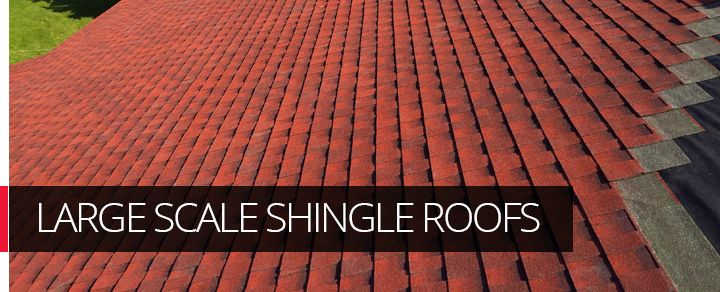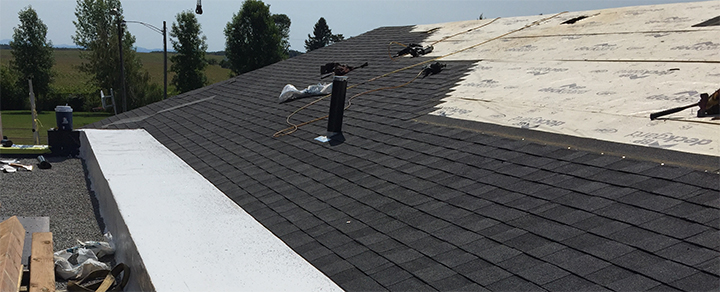Of all of the possible roofing systems, the asphalt and gravel roof is the one which has passed the test of time on millions of buildings for over a hundred years. Using the highest quality weatherproofing materials along with the strict rules of the Quebec master roofers association (AMCQ) offers results which will protect your investment for decades. Asphalt and Gravel roofs are generally composed of 4 to 5 layers of hot asphalt impregnated membranes, covered with a flood coat of hot asphalt into which is embedded a protective layer of gravel.
"Heat Islands" created by dark roofs have been shown to have a negative effect on urban living conditions. In order to respect new municipal rules, asphalt and gravel roofing systems can be installed with crushed marble (white gravel) which offers a high reflectivity index, instead of the traditional grey gravel. The effects of this reflectivity are pronounced as the heat of the sun is reflected instead of accumulating in the roof, which improves conditions both inside the building and outside, lowering your air conditioning costs. This crushed marble finish can also obtain LEED credits for all construction, renovation and refection projects.
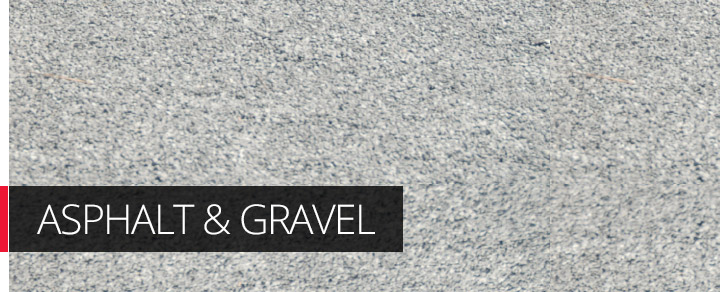
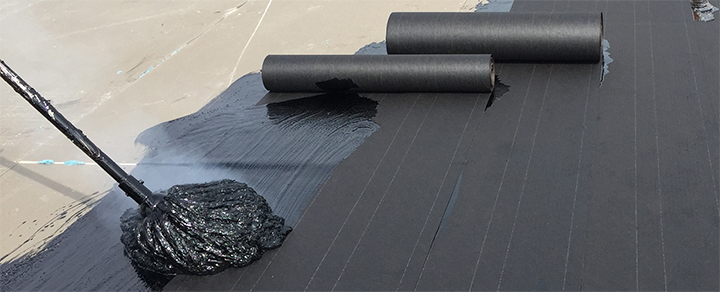
Modified bitumen roofing system seeing a lot of growth in Quebec. This type of system is composed of a first waterproof underlayment membrane on which a second granulated finish membrane is installed. Bilayer modified bitumen membranes can be adapted to many different situations, since the roofing membrane can be installed many different ways; auto-adhesive, mechanically fastened, fused with hot asphalt or more commonly torch welded with a handheld propane torch.
The protective granules on the cap layer are offered in many different colors and can even be composed of a reflective white ceramic, which offers a greater aesthetic choice. The membranes come in rolls and are composed of an inner reinforcing mesh frame covered in modified bitumen. During its fabrication, the manufacturer injects SBS polymers into the bitumen in order to give it flexibility. Since the rolls are easily palletized and moved, they are an ideal roofing system where access may be difficult such as high rises or urban roofs.
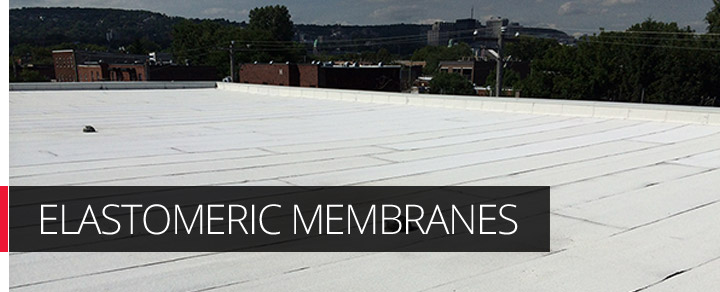
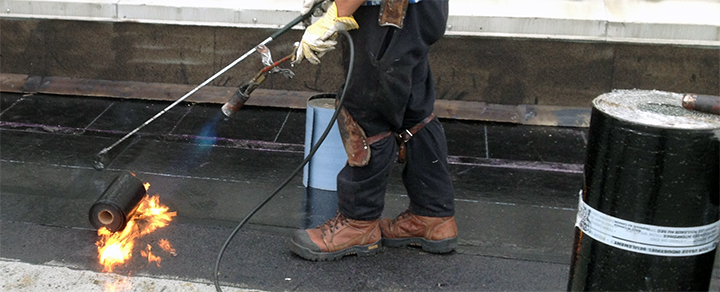
EPDM is a roofing system commonly used during the initial construction of very large industrial and commercial buildings. Since it is rapidly installed and is a single-ply roofing membrane, it's one of the least expensive roofing options.
EPDM roofs are generally installed using river stone as ballast, but it is possible to install an EPDM system in full adherence using adhesives or hot asphalt.
EPDM membranes are black therefore in municipalities where laws are in place to prevent "heat islands" we must replace the river stone by a larger grade of crushed marble (white gravel). Otherwise the next system, TPO, is another white roofing option.
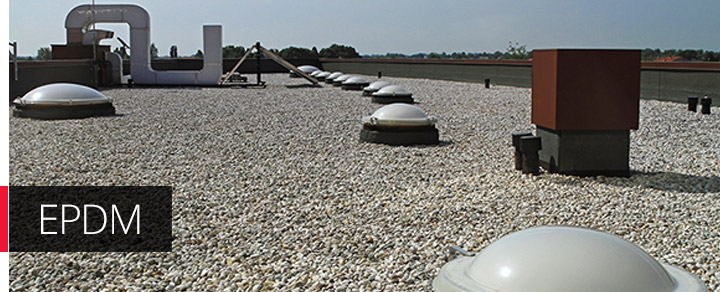
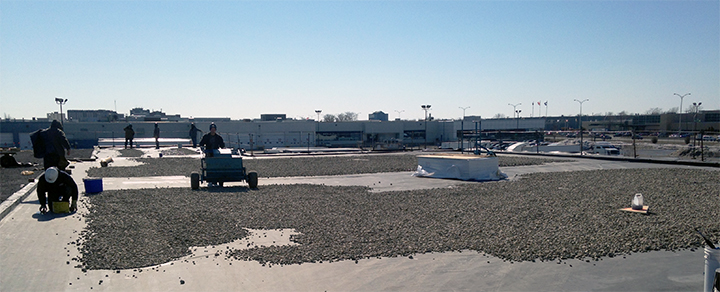
Thermoplastic olefin (TPO) is a roofing membrane which made its way to market in 1989. Since its beginnings, millions of square meters of roofs have been installed with TPO membrane in the commercial markets, such as factories and warehouses.
TPO roofing consists of a single-ply membrane, similar to EPDM, but is 100% recyclable and naturally white and reflective. Instead of being glued like EPDM, TPO is mechanically fastened along the entire perimeter of the roll and then the joints are fused with hot air in order to create a large monolithic membrane. Another advantage of TPO is that it's installed without flames.
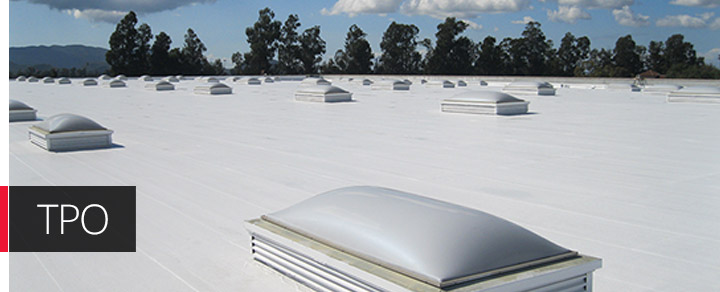

One of the cold applied roofing systems we install is a built up roof similar to an asphalt and gravel roof. Generally, this system is composed of 2 or 3 plies of modified bitumen membranes and a final protective layer of gravel. One of the particularities of this system is that the hot asphalt is replaced with liquid bituminous adhesive which does not need to be heated.
When you have commercial, industrial or institutional roofs, it's often a priority to minimize impacts of the construction on the owners of the building and their clients. Installing a cold applied roofing system allows to minimise asphalt odors, since there is no asphalt tanker on site. Cold applied roofs are also appropriate when the client would prefer a roof to be installed without the use of flames. Finally, this roofing system is perfect for difficult to access roofs such as high rises or urban roofs where the streets are often narrow and full of vehicles.
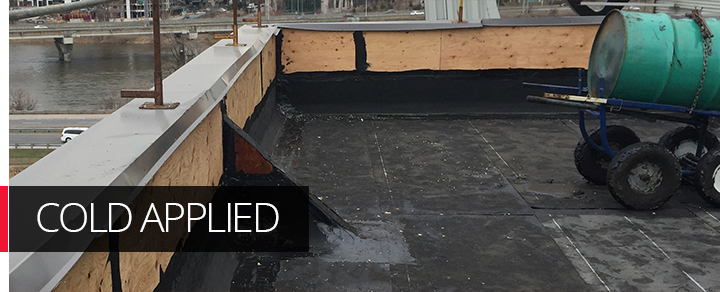
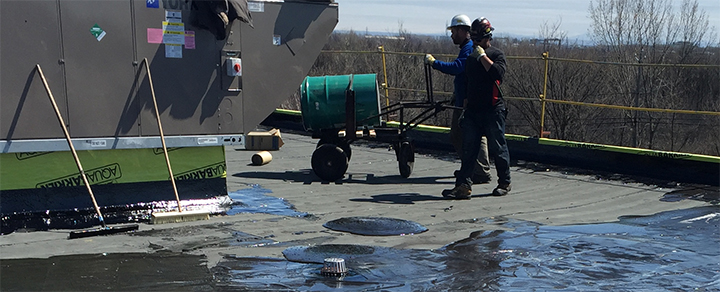
Though they are not appropriate for flat roofs, many industrial and commercial buildings have roofs which are steeper than 15˚ or 3:12 pitch. An affordable and durable option for sloped roofs would be asphalt shingles.
Flexible auto adhesive self-sealing elastomeric waterproofing membrane is first installed at the eaves, over which rolls of synthetic underlayment are installed to completely cover the roof deck. Finally, shingles are installed on top of the membranes, protecting your building from the weather. Manufacturer limited warranties commonly last between 25 to 40 years. Shingle roofs require little maintenance and have been protecting houses and large buildings for decades.
